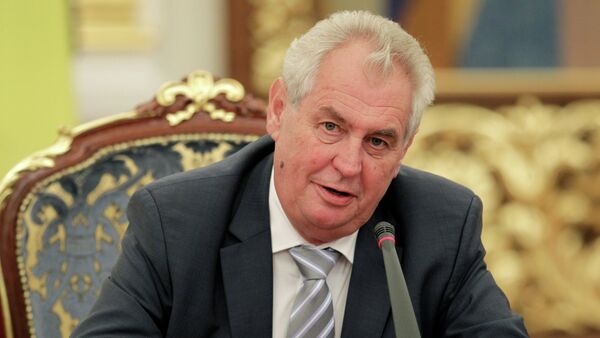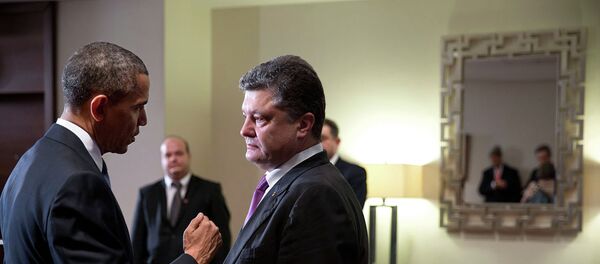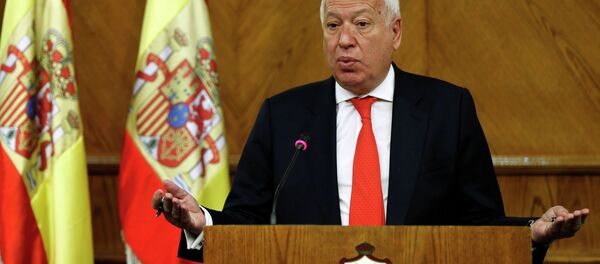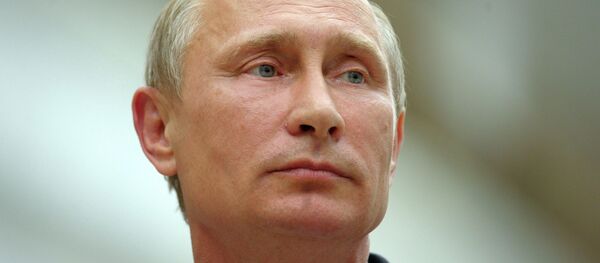"My opinion is that since there is a ceasefire in Ukraine that is being generally observed, there is no reason to strengthen the [anti-Russia] sanctions that are limited to July of this year," Zeman said in the interview released by the Czech monthly on Sunday, adding that it is up to all members of the European Union to decide on the de-escalation of the sanctions regime.
The West, which accuses Russia of aiding independence supporters in southeastern Ukraine, has imposed several rounds of sanctions against Russia over its alleged involvement in the country's internal affairs.
According to the Czech president, Ukraine now needs to take measures aimed at decentralizing power in the country, as stipulated by the Minsk agreements.
"[Ukrainian] President [Petro] Poroshenko has promised a special status to Donetsk and Luhansk," Zeman told Parlamentni Listy, adding, however, that he hopes that Ukraine's territorial integrity will be preserved.
"It originates from the linguistic structure of the population as well, as the fact that Western Ukraine has been logically turning to the West, while Eastern Ukraine has been turning to Russia," Zeman said.
Relations between Russia and the West have deteriorated significantly after Russia reunited with Crimea in March and an armed conflict erupted in eastern Ukraine, where independence supporters in the Donetsk and Luhansk regions refused to recognize the new coup-installed government.
Last month, following a meeting between the leaders of Germany, Russia, France and Ukraine, a ceasefire agreement was signed between Kiev and the self-proclaimed people's republics of Donetsk and Luhansk (DPR and LPR).
German Chancellor Angela Merkel has stressed that adherence to the Minsk agreements is key to the possible lifting of Western anti-Russia sanctions.





